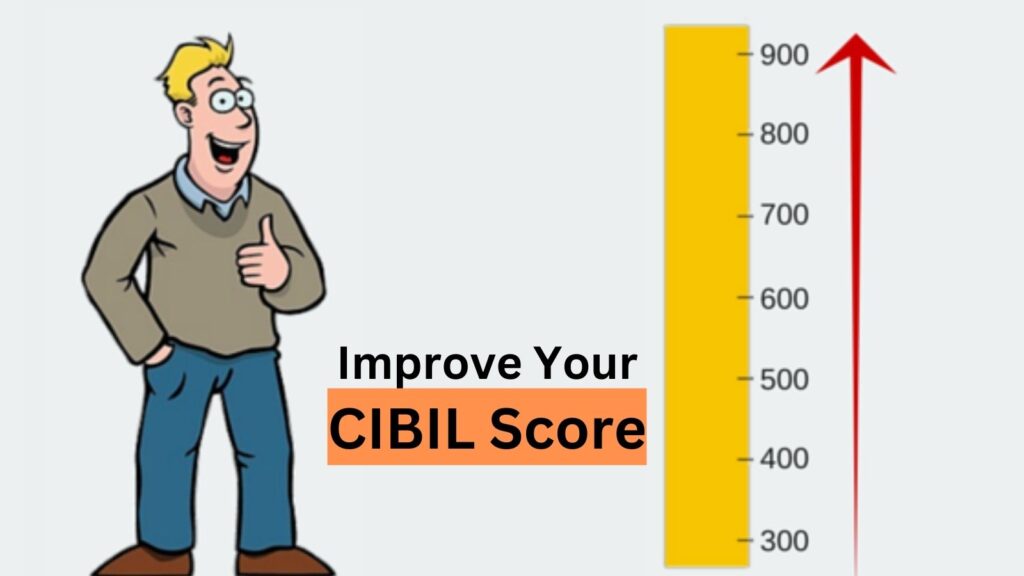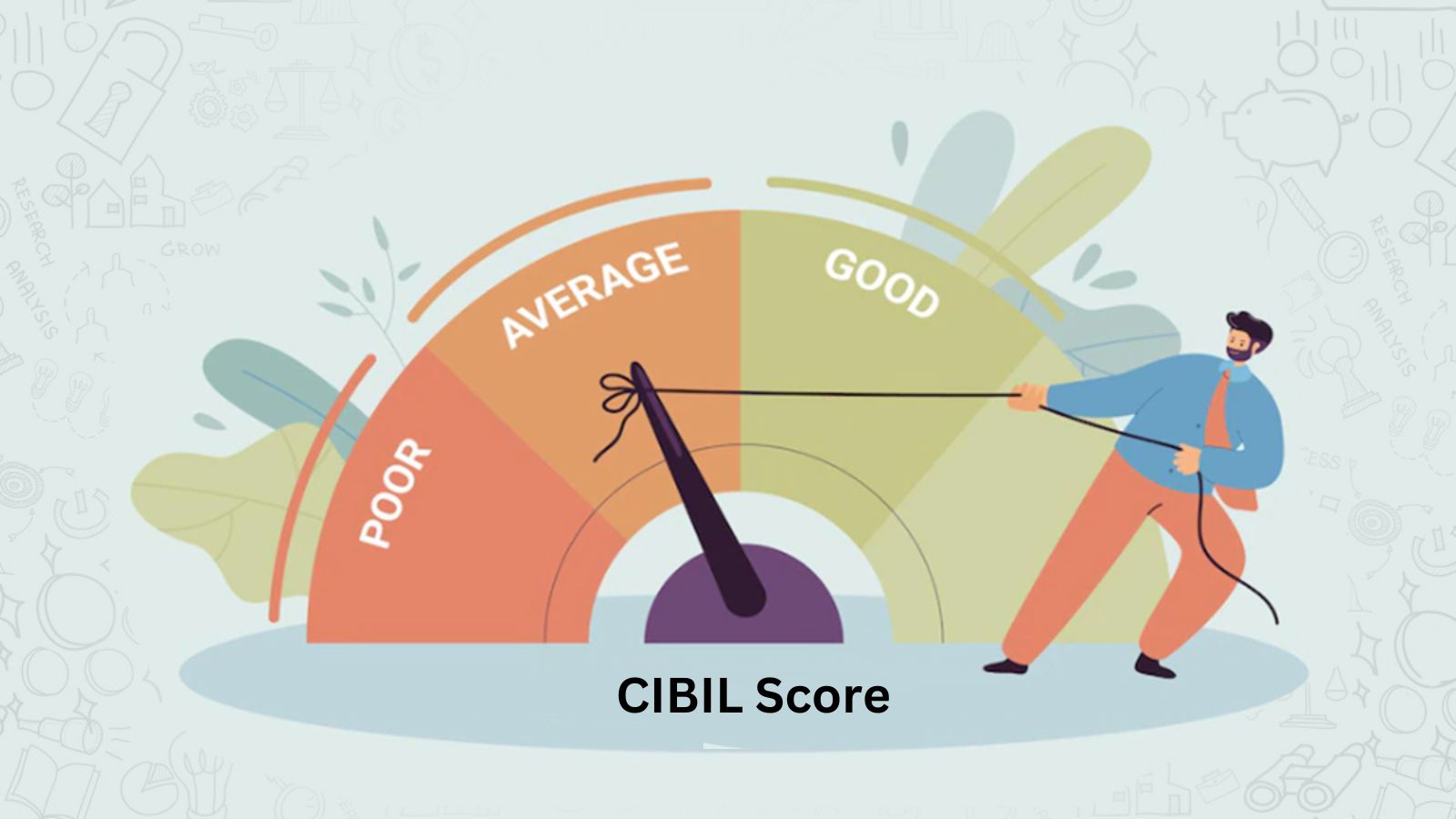Your CIBIL Score plays a crucial role in determining your eligibility for loans and credit cards. A higher score increases your chances of approval and can help you get lower interest rates. However, many individuals struggle with low CIBIL scores that hinder their loan approvals. If you have a low CIBIL score, you can take steps to boost it quickly.
What is the CIBIL Score?
CIBIL score is a 3-digit numeric summary of your credit history that ranges between 300 and 900. It is calculated by Credit Information Bureau India Ltd. (CIBIL) based on the information in your credit report.
Lenders check your CIBIL score when you apply for any type of loan or credit card to determine your creditworthiness.
- A higher score indicates you are a responsible borrower who repays debts on time. Those with 750+ scores are most likely to get their credit applications approved.
- A lower score implies you have a spotty repayment history and are at risk of defaulting. Those with poor CIBIL scores below 600 often get rejected for loans and credit cards.
Therefore, it is critical to maintain a high CIBIL score above 750 so you can easily access credit whenever you need it, at attractive interest rates.
Understand How the CIBIL Score Is Calculated
CIBIL score ranges from 300 to 900, with 750+ considered excellent. The score is calculated based on your credit history, including:
- Payment History – Whether you pay your EMIs and credit card bills on time. Even a single missed payment can hurt your score.
- Credit Utilization – The ratio of your total credit used to your total available credit limit. Using more than 30% of your limit hurts your score.
- Credit Mix – The types of loans and credit you have. Having a mix of secured and unsecured credit is best.
- Age of Credit History – How long you have had credit accounts. Older accounts improve your score.
- Hard Credit Inquiries – Checks by lenders when you apply for new credit. Too many in a short period lowers your score.
CIBIL Score Range
| CIBIL Score Range | Rating |
| 300-500 | Poor |
| 550-650 | Average |
| 650-750 | Good |
| 750-900 | Excellent |
How to Improve Your CIBIL Score

It will only become necessary to raise your CIBIL score if you intend to apply for a new loan or credit card in the future and your credit score, or CIBIL, is low. As a result, we’ve compiled a list of some of the greatest solutions for your valid question about increasing your CIBIL score.
Over time, it is easy to raise your CIBIL score. Now let’s examine the strategies that will help you improve your CIBIL score.
Set Payment Reminders to Avoid Missed EMI Payments
Missing an EMI payment damages your credit score. Set reminders on your phone or calendar for loan and credit card payment due dates. Automate payments through standing instructions to avoid penalties and credit score drops from late payments.
Keep Your Credit Card Utilization Ratio Low
Don’t max out your credit card limits. Experts recommend keeping your credit utilization ratio under 30%. Use less than 30% of your total available credit limit across cards. This signals responsible credit use.
Check for Errors in Your CIBIL Report
Errors like incorrect loan or credit card details can lower your score. Review your CIBIL report to catch mistakes. Raise disputes online to get errors corrected. This can boost your score once resolved.
Avoid Multiple Credit Applications Within a Short Time
When you apply for too many loans or cards together, it appears like credit hunger to lenders. Spread out applications over months. Too many hard inquiries in a short period prompt rejections or interest rate hikes.
Open a Secured Credit Card if Your Score is Very Low
Secured cards against fixed deposits help build credit if your CIBIL score is poor. Use the secured card responsibly for 6-12 months. This establishes discipline and starts improving your score.
Don’t Close Old Credit Card Accounts
Keep old cards open even if inactive. The longer your credit history, the better. Closing old card accounts reduces your credit age and can lower your score.
Limit Enquiries on Your Report
Too many parties checking your CIBIL report also lowers your score as it appears like credit hunger. So avoid arbitrarily sharing your details. Share only when absolutely required for a loan/credit card application.
Monitor Accounts Where You Are a Guarantor
As a loan guarantor, your score is affected by delays or defaults. Follow up with the primary borrower for on-time payments. This avoids damage to your creditworthiness.
With persistence and credit discipline, you can see an upward trend in your CIBIL score over time. Adopt smart credit habits to become eligible for loans and cards at attractive rates.
By following these steps diligently for 6-12 months, you can see a steady improvement in your CIBIL score. The higher your score, the easier it becomes to get quick loan approvals on attractive terms from lenders.
How to Check Your CIBIL Score?
You can easily check your latest CIBIL score in just a few steps:
- Visit the official CIBIL website or app and click on “Get your CIBIL Score”.
- Provide your basic personal information like name, date of birth, PAN details etc.
- An OTP will be sent to your registered mobile number for verification.
- After OTP validation, your score will be displayed instantly along with key factors impacting it.
In addition to checking your score, also review your full CIBIL report periodically to check your complete credit information and identify any errors to dispute. Stay vigilant about your credit health!
Conclusion
Improving your CIBIL score requires diligence and discipline, but the benefits are worth the effort. By following these strategies consistently, you can gradually enhance your creditworthiness and unlock better financial opportunities.
Remember, improving your CIBIL score is a gradual process, and results may take several months to reflect. Stay patient and committed to your financial goals, and you’ll see positive changes over time.
Disclaimer: This article just contains generic information that is meant to be informative. It does not replace customised guidance tailored to your situation. Before you act or stop acting, it is advised that you seek specific expert counsel.
CIBIL Score FAQ
What is a CIBIL score, and why is it important?
A CIBIL score is a numerical representation of an individual’s creditworthiness, ranging from 300 to 900. It’s crucial because it determines your eligibility for credit products like loans and credit cards. A higher score increases your chances of approval and better terms.
How can I check my CIBIL score?
You can check your CIBIL score online through the official website of TransUnion CIBIL or other authorized platforms. Some financial institutions also provide complimentary access to your score.
What factors influence my CIBIL score?
Several factors impact your CIBIL score, including payment history, credit utilization ratio, length of credit history, types of credit accounts, and recent credit inquiries.
How can I check my CIBIL score for free?
You can get your CIBIL score for free once a year by visiting the official CIBIL website and providing your basic personal details like name, date of birth, PAN number etc. An OTP will be sent to your registered mobile number for verification before displaying your score.
What is considered a good CIBIL score in India?
A CIBIL score between 750-900 is considered excellent while 700-750 is good. A score above 750 helps get easy loan approvals on favourable terms from most lenders.
How long does it take to improve the CIBIL score?
Typically it takes 6-12 months of diligent credit management to see an improvement in your CIBIL score. The higher your score, the longer it takes to build as each point gets tougher. Have patience and focus on good credit habits.
How can I dispute errors on my CIBIL report?
If you spot any errors on your CIBIL report, you can dispute them by contacting CIBIL directly or through their official website. Provide supporting documentation to substantiate your claim, and CIBIL will investigate and rectify the errors if found valid.








